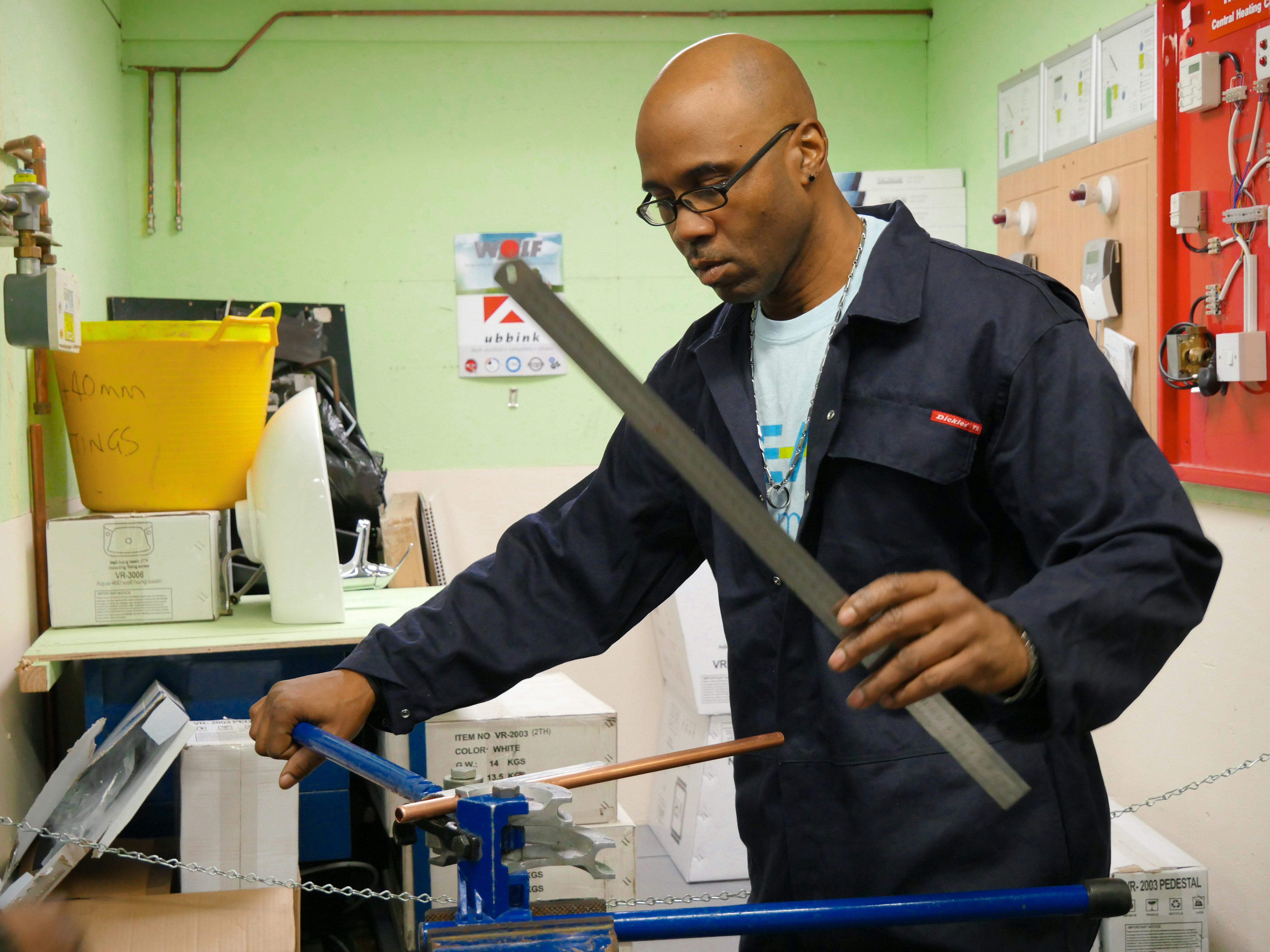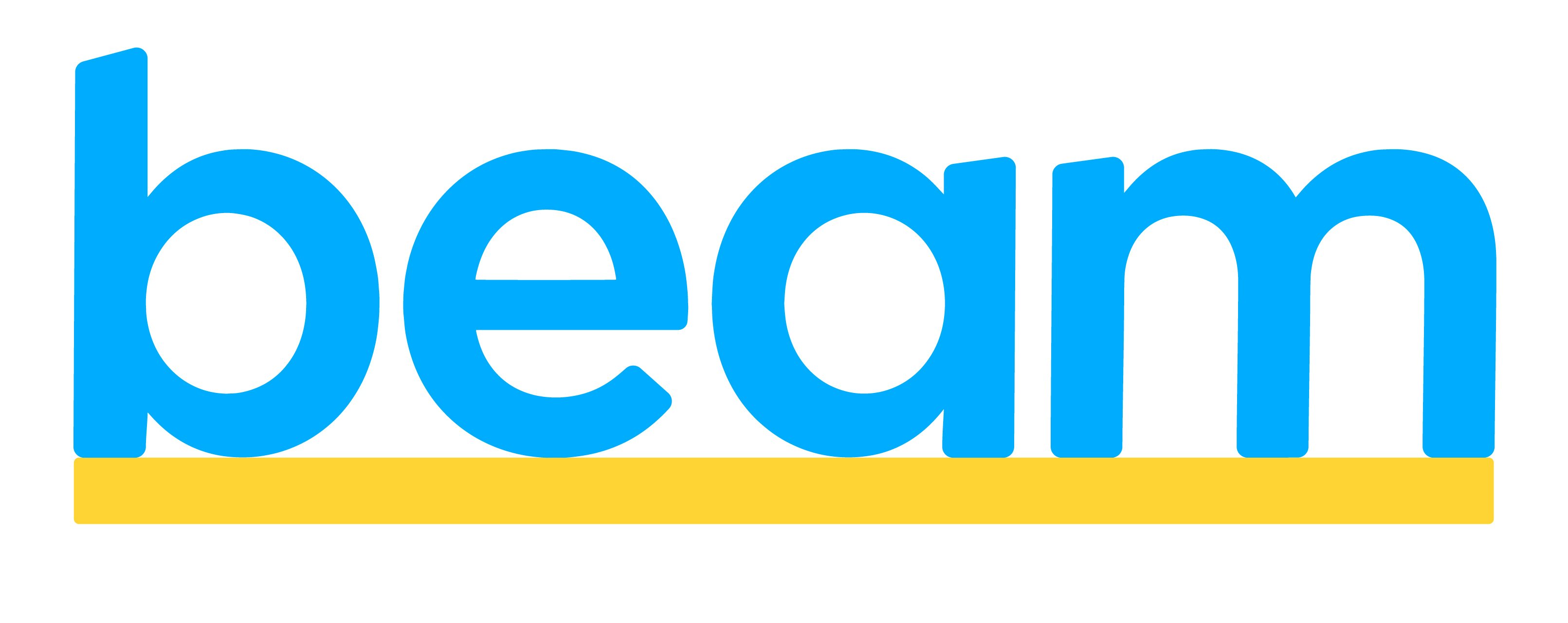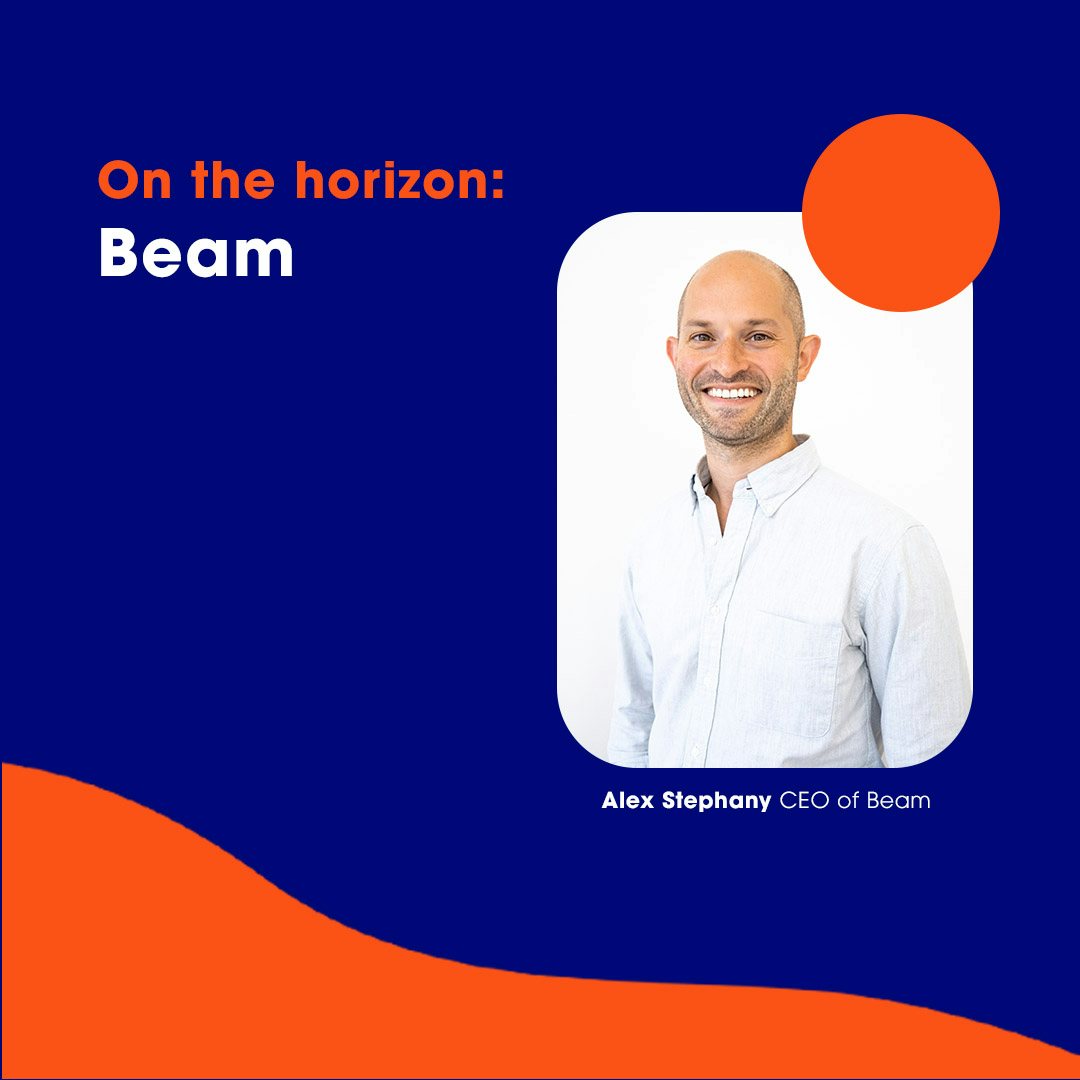'On the horizon' is a brand new series where we meet businesses, initiatives and people at the forefront of creating a brighter tomorrow.
In our first episode, we catch up with Alex Stephany, CEO of Beam.
Beam is an organisation that empowers people to leave homelessness for good. They help homeless people find new jobs and homes, giving them a brighter future. The Beam platform enables the public to donate directly to a homeless person's 'crowdfunding campaign'. The campaigns can range from learning new vocational skills (such as Gary learning to be a plumber, pictured below) to securing a stable home. Beam also work with governments and corporations to help lift people out of homelessness. We had the pleasure of catching up with their CEO and founder, Alex Stephany.

How was Beam born & why does it exist?
Several years ago, I got to know a homeless man at my local Tube station. I’d buy him cups of coffee and pairs of thermal socks when it was getting cold. At one point, he disappeared for weeks on end. When he reappeared, he looked years older: he told me he’d had a heart attack and had just come out of hospital. Despite the well-meaning gestures from myself and no doubt others, he was in a worse position than ever.
So I began to ask myself what it would take to make a lasting difference to this man’s life. He had never had a job, and was illiterate. For me, the answer lay in empowering him with the skills and training needed to sustainably support himself. Of course, that would cost far more than coffees or socks - but what if everyone chipped in?
The idea of crowdfunding employment training for homeless people was born. Over the following nine months, I developed the model working with homeless people and charities. Beam launched in October 2017.
Our mission is to create equality of opportunity at scale, starting by crowdfunding brighter futures for homeless people in the UK. In the future, our goal is to work with thousands more disadvantaged people not just in the UK, but worldwide - from refugees to prison leavers to people with disabilities.
Where are you on your journey?
I can’t quite believe that Beam will be turning five in September. We’ve quadrupled the team in the past couple of years (there are now 50 of us!) and outgrown our offices twice. The Beam Team is a truly remarkable group of extremely intelligent, experienced but also down to earth people.
In this time, we’ve proven that Beam’s community-led approach to supporting disadvantaged people into jobs truly works: our beneficiaries are starting work 80% of the time. And it’s amazing to see Beam rolled out not just across London, but across many other cities up and down the UK.
What have you managed to achieve so far?
We have crowdfunded more than £3m on behalf of homeless people, 100% of which supports their progression into stable work in over 60 career pathways: whether that’s the cost of training, childcare, tools, textbooks or more. It’s a highly personalised approach that focuses on people’s unique strengths and needs. And the public can fund the progression of people out of homelessness with unparalleled transparency and efficiency. We’ve now supported more than 700 people to leave homelessness for good, which we’re incredibly proud of.

What do you hope 2030 looks like for Beam?
By 2030, my vision is for Beam to help 1 million disadvantaged people into stable jobs. In turn, allowing us to become one of the most positively impactful companies in the world. It’s a bold vision, but one that I think we can achieve through lots of action, grit and hustle.
What challenges are you experiencing?
We’re growing rapidly and have big ambitions to scale Beam to as many people as possible. This means we need to hire the smartest people and this uses up a lot of resources. If you’re reading this and looking to join the UK’s top Tech for Good startup, we’d love to hear from you! [https://beam.org/careers]
If you could wish for one thing, what would it be?
Greater collaboration between tech, government, charities, corporates and local communities. At Beam, I’ve seen first-hand how social impact is best achieved when everyone is working to their strengths. For example, my background is in tech, while my cofounder Seb Barker joined Beam from the NHS after years working in homelessness. We could only create Beam by combining experience from wildly different professional worlds. What would happen if more people working in tech collaborated with people who'd never worked a day in tech? How many more problems could we solve?
Be sure to check out the wonderful work of Beam via their website: https://beam.org/
